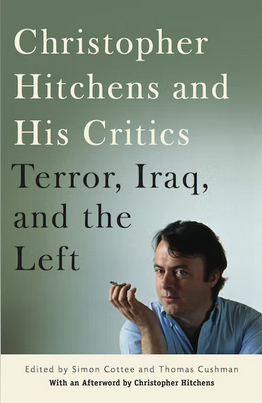Newly released
This book is new and will be uploaded as soon as it becomes available to us and if we secure the necessary publishing rights.

Christopher Hitchens and His Critics Book PDF
(0)
Author:
Christopher HitchensNumber Of Reads:
60
Language:
English
Category:
literatureSection:
Pages:
379
Quality:
excellent
Views:
661
Quate
Review
Save
Share
Book Description
Christopher Hitchens and His Critics: Terror, Iraq, and the Left
Christopher Hitchens—political journalist, cultural critic, public intellectual and self-described contrarian—is one of the most controversial and prolific writers of his generation. His most recent book, God Is Not Great, was on the New York Times bestseller list in 2007 for months. Like his hero, George Orwell, Hitchens is a tireless opponent of all forms of cruelty, ideological dogma, religious superstition and intellectual obfuscation. Once a socialist, he now refers to himself as an unaffiliated radical. As a thinker, Hitchens is perhaps best viewed as post-ideological, in that his intellectual sources and solidarities are strikingly various (he is an admirer of both Leon Trotsky and Kingsley Amis) and cannot be located easily at any one point on the ideological spectrum. Since leaving Britain for the United States in 1981, Hitchens's thinking has moved in what some see as contradictory directions, but he remains an unapologetic and passionate defender of the Enlightenment values of secularism, democracy, free expression, and scientific inquiry.
The global turmoil of the recent past has provoked intense dispute and division among intellectuals, academics, and other commentators. Hitchens's writing during this time, particularly after 9/11, is an essential reference point for understanding the genesis and meaning of that turmoil—and the challenges that accompany it. This volume brings together Hitchens's most incisive reflections on the war on terror, the war in Iraq, and the state of the contemporary Left. It also includes a selection of critical commentaries on his work from his former leftist comrades, a set of exchanges between Hitchens and various left-leaning interlocutors (such as Studs Terkel, Norman Finkelstein, and Michael Kazin), and an introductory essay by the editors on the nature and significance of Hitchens's contribution to the world of ideas and public debate. In response, Hitchens provides an original afterword, written for this collection.
Whatever readers might think about Hitchens, he remains an intellectual force to be reckoned with. And there is no better place to encounter his current thinking than in this provocative volume.
Christopher Hitchens
He is a British-American author, columnist, essayist, orator, literary and religious critic, social critic and journalist. Hitchens was the author, co-author, editor or co-editor of more than 30 books, including five collections of political, cultural, and literary essays. His polemical rhetoric made him a central topic of public discourse, resulting in him as an intellectual and controversial figure. Contributed to New Statesman, The Nation, The Weekly Standard, The Atlantic, London Review of Books, The Times Literary Supplement, Slate, Free Inquiry, and Vanity Fair. Describing himself as a democratic socialist, Marxist and anti-totalitarian, he broke with the political left after describing it as the "lukewarm reaction" of the Western left to the debate over The Satanic Verses, followed by the left's embrace of Bill Clinton and the anti-NATO war movement in Bosnia and Herzegovina in the 1990s.
The last century. His support for the war on Iraq further separated him. His writings included criticism of public figures such as Bill Clinton, Henry Kissinger, Mother Teresa and Diana, Princess of Wales. He was the older brother of conservative journalist and author Peter Hitchens. He also called for the separation of church and state. As a critic of divinity, he regards notions of a deity or a higher power as universalistic beliefs that restrict individual freedom. He advocated freedom of expression and scientific discovery, and that it trumps religion as a moral code of conduct for human civilization. His famous statement, "What can be affirmed without evidence can be denied without evidence" became known as the Hitchens Code.
Book Currently Unavailable
This book is currently unavailable for publication. We obtained it under a Creative Commons license, but the author or publisher has not granted permission to publish it.
Rate Now
5 Stars
4 Stars
3 Stars
2 Stars
1 Stars
Christopher Hitchens and His Critics Quotes
Top Rated
Latest
Quate
Be the first to leave a quote and earn 10 points
instead of 3
Comments
Be the first to leave a comment and earn 5 points
instead of 3